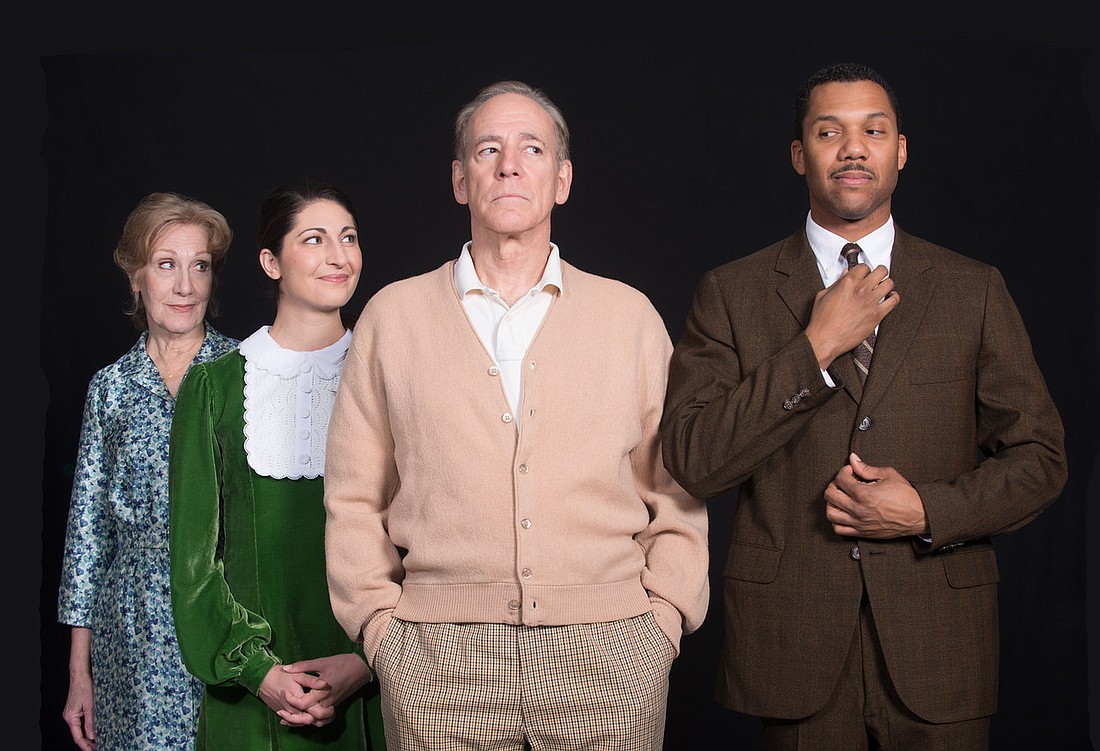- April 25, 2024
-
-
Loading

Loading

When it comes to race relations, it can be easy to focus on the progress we’ve made as a country and overlook the work that remains to be done. A 1967 film about the controversy surrounding an interracial marriage might not seem especially relevant in 2016. But for Frank Galati, who’s currently directing a stage adaptation of “Guess Who’s Coming to Dinner” at Asolo Repertory Theatre, the issues at hand couldn’t be more relevant.
After a recent rehearsal, Galati takes a moment to reflect on the production. He’s reminded of “1776,” which he directed at Asolo Rep in 2012.
“We hold these truths to be self evident,” he says. “That all men are created equal. The historical significance of that sentence is profound. Lincoln referred back to it in the Gettysburg Address. We like to think that we’ve come a long way, but here we are today, still suffering the wounds of the Civil War. We’re still dealing with inequality, bigotry, racism and hatred every day in this country.”
The play, based on Todd Kreidler’s stage adaptation of the groundbreaking film that starred Katharine Hepburn, Spencer Tracy and Sidney Poitier, is part of the fourth season of Asolo Rep’s American Character Project — a five-year theatrical study of what it really means to be an American, as explored through carefully selected productions.
Galati, an Academy Award nominee and two-time Tony Award winner, was there for the program’s inception. Four years ago, while directing “Twelve Angry Men,” he remarked to Producing Artistic Director Michael Donald Edwards that, in his eyes, each character represented a different facet of the American Character, and so the project began. Today, he says he feels a continued sense of responsibility to the mission.
“What is the American character?,” he says. “Is there one? Are our ideals shared? These are the things we’re exploring. It’s essential for those of us who have the privilege to take the stage to tell our own stories, as well as other people’s. It’s an honor and a challenge to tell a story like this in 2016.”
The production follows a young interracial couple, a successful black doctor named John Prentice, and his fiancé, a white woman named Joanna Drayton. Upon learning of their engagement at a dinner party, the couple’s families struggle with the union and the realities the couple will face in a racially tense atmosphere (the U.S. Supreme Court formally invalidated laws banning interracial marriage the same year the film was released).
Mark Jacoby, who plays the role of Joanna Drayton’s father, Matt Drayton, remembers seeing the movie in theaters just days after Dr. Martin Luther King Jr. was assassinated.
“It had a tremendous impression on me,” he says. “When I first learned I was doing this production, the topic didn’t immediately seem as relevant as it did at the time — this was a real hot-button issue then. But as we started working on it, being in that environment brought me right back to that place. You realize these issues are very much still relevant.”
To translate the production and ensure it hits its mark, Galati says he has been in touch with playwright Todd Kreidler via phone, to work out some of the fine points of the adaptation, and he’s worked closely with the actors to perfect the play’s tone and preserve its important message.
“It has to be just right,” he says. “It can’t be too broadly comic or too sober and serious. But it’s a good technique to see this story through the lens of a romantic comedy. Humor has the power to disarm you. You open up, and laughter is inherently in need of an echo. It unites an audience and disarms them before it makes its point. I think we’ve found the right balance.”